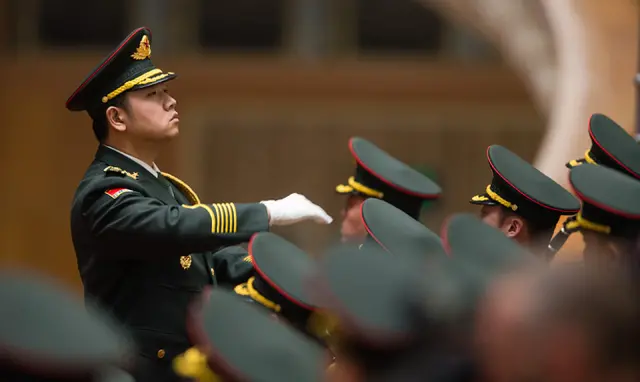The US ordered Russia to shut down its consulate general in San Francisco and two diplomatic affiliates in New York and Washington on September 2, propelling the diplomatic row between Moscow and Washington triggered by Russia's alleged intervention in the 2016 US presidential elections to enter a new stage. The tit-for-tat action came after Russian President Vladimir Putin in July ordered 755 US staff to leave US diplomatic missions in Russia. Although US-Russian relations are strained at a yet controllable level, their joint diplomatic offensives have gone beyond the peak of those seen during the Cold War.
After the closure order, Russian Foreign Ministry Spokesperson Maria Zakharova said that September 2 was a "dark day in the history of American diplomacy." Russia was wholly shocked by the move and a diplomatic incident ensued.
Today, the US-Russian diplomatic war has escalated beyond the scope of international politics. The war between Russia and Georgia triggered by NATO and the EU's expansion to the east, and the political crisis in Ukraine and Russia's annexation of Crimea, can be seen as inevitable conflicts arising from the tactical geopolitical games played out by global major powers.
However, the sole basis of this year's US-Russian diplomatic war seems to revolve around the ambiguous allegations over Russian intervention in the US presidential elections.
Since the resignation of former US national security adviser Michael Flynn and the subsequent "Russiagate" investigations, the logic behind US-Russian relations has changed significantly. To show "political correctness," the Trump administration must be seen to attack Russia at every opportunity. In the face of frequent attacks from the US, Russia has had no option but to retaliate, causing a spiral of escalating tensions.
Even without the Russiagate incident, room for improving US-Russian relations remains limited due to a joint failure to get past the legacy of the Ukrainian political crisis.
Almost everyone knows that the two countries could cooperate under existing frameworks in the fight against the Islamic State, the Syrian peace process or the North Korean nuclear issue. Trump and Putin's first meeting at the G20 Hamburg summit raised a glimmer of hope for the easing of bilateral relations. The Sanctions Act passed by the US Congress, however, immediately undermined the previous efforts of the two leaders.
With Trump entering his ninth month in office, US-Russian relations have plunged to an all-time low, and lie in a far worse state than at any time during Barack Obama's tenure.
Even after Russia's annexation of Crimea in 2014, there were still a number of US politicians and people serving in public office who stressed the importance of maintaining US-Russian dialogue. Even during the Cold War, this level of political mistrust was uncommon. At the time of the Cuban missile crisis and the Soviet invasion of Afghanistan, the US and the Soviet Union still retained channels for normal dialogue despite that the two countries had their daggers drawn.
The forces behind escalating US-Russian tensions are not the obvious political contradictions but instead stem from Trump's links with Moscow, which are being used as a tool by his political opponents to attack him. Demonizing Russia has become an everyday occurrence in Washington, but Trump lacks the means to deal with this complex political situation.
By contrast, in this latest stage of the US-Russian diplomatic war, Russia has notably demonstrated more restraint than the US. The US attacked Russia on four separate occasions, yet Russia only retaliated to the Sanctions Act in July. So far, the Russian counterattack has not been leveled at Trump. Russia still has hopes for Trump, although Moscow's patience may be wearing thin. Russian Foreign Minister Sergei Lavrov's recent statements still show Moscow's sincerity in maintaining a dialogue with the US to avoid the deterioration of bilateral relations.
The Russian government is clear that under the context of a global economic slowdown and its imminent presidential election, any further deterioration of US-Russian relations could have a serious impact on the Russian currency and economy. This difficult situation has forced Russia to maintain the current diplomatic strife at a controllable level, without seeking to make breakthroughs.
The spiraling escalation of diplomatic tensions and ongoing political see-sawing have led US-Russian relations down a blind alley.
Their ties are no longer under the control of Trump and Putin, and even if the two leaders were willing to improve relations, the current political environment would not allow them to do much about it.
The US-Russia diplomatic war reflects to what extent the two presidents are restrained by domestic forces. It would be a mistake to overestimate the personal influence the leaders of these two powers hold when analyzing international political issues.
By Cui Heng, The author is a PhD candidate at the Center for Russian Studies, East China Normal University.
This article
is adapted from global times, and is not what APD stands for.
(GLOBAL TIMES)
 简体中文
简体中文

